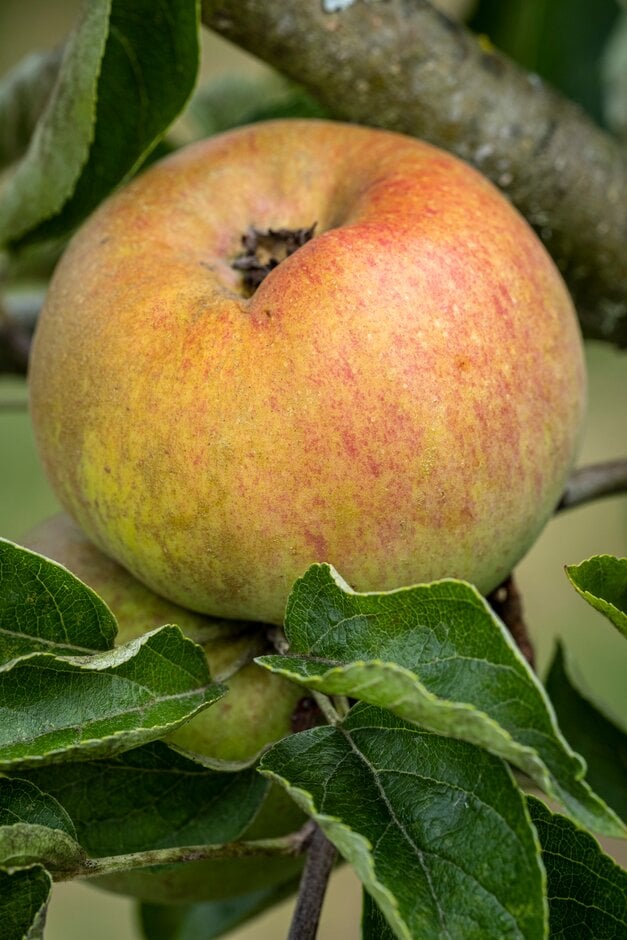Malus domestica 'Court Pendu Plat' (D)
apple 'Court Pendu Plat'
A late, dessert apple with yellow-green skin, flushed and striped with red and marked with russet speckles. Dry, dense, pale cream flesh develops an intense, rich, sweet, fruity flavour as it matures in storage. Upright, compact trees crop well in mid-autumn, fruit storing until early spring. Partly self-fertile, it crops better with a group 4 or 5 pollinator. A very ancient variety, possible dating back to Roman times, the name literally translates as ‘short-hanging flat’ in reference to the very short-stalked, somewhat flattened fruit
Size
Ultimate height
4–8 metresTime to ultimate height
10–20 yearsUltimate spread
4–8 metresGrowing conditions
Moisture
Moist but well–drained, Well–drainedpH
Acid, Alkaline, NeutralColour & scent
| Stem | Flower | Foliage | Fruit | |
| Spring | Pink White | Green | ||
|---|---|---|---|---|
| Summer | Green | |||
| Autumn | Green | Green Brown Red Yellow | ||
| Winter |
Position
- Full sun
Aspect
South–facing or West–facing
Exposure
Sheltered Hardiness
H6Botanical details
- Family
- Rosaceae
- Native to GB / Ireland
- No
- Foliage
- Deciduous
- Habit
- Spreading branched
- Genus
Malus are small to medium-sized deciduous trees with showy flowers in spring and ornamental or edible fruit in autumn; some have good autumn foliage colour
- Name status
Accepted
How to grow
Cultivation
Prefers deep, fertile, moist but well-drained, neutral soil in a sunny, sheltered position. Will not thrive on very acid soils, shallow chalk soils or with shade for more than half the day. May require fruit thinning to improve fruit size and quality. See apple cultivation
Propagation
Propagate by chip budding in late summer, or grafting in mid-winter. Plants grown from pips are unlikely to resemble the parent
Suggested planting locations and garden types
- City and courtyard gardens
- Cottage and informal garden
- Wildlife gardens
- Edible fruit
- Wall side borders
Pruning
Prune according to chosen training method. See apple pruning
Pests
May be susceptible to aphids, including rosy apple aphid and woolly aphid, fruit tree red spider mite, codling moth and other caterpillars
Diseases
May be susceptible to apple canker, blossom wilt, brown rot, fireblight and honey fungus Has some resistance to apple scab and powdery mildews
Get involved
The Royal Horticultural Society is the UK’s leading gardening charity. We aim to enrich everyone’s life through plants, and make the UK a greener and more beautiful place.
